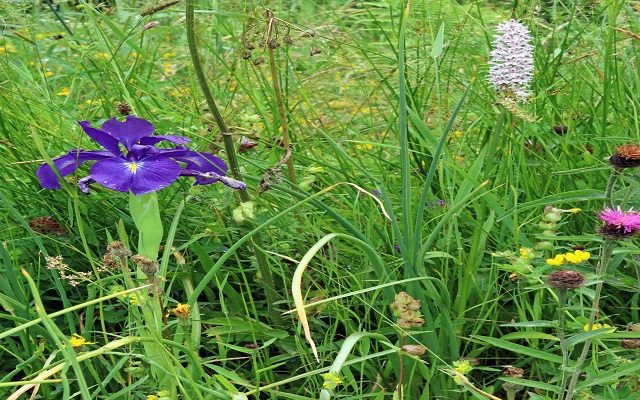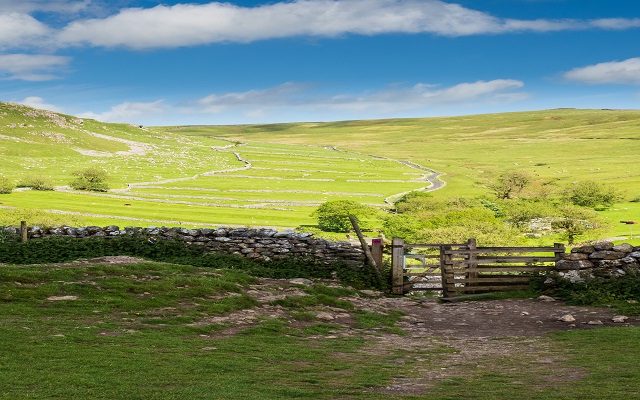Land Business Update | Week Commencing 17th August 2020
Welcome to our update on key land management, farming, planning and energy issues.
FARMING
Strutt & Parker Health and Safety update
Please download our latest update from our Rural Hub. This edition includes articles on the latest HSE fatality figures for farming; health and safety posters; safety at harvest; COVID; air suspension systems; and vermin control. For further information, please contact Robert Gazely.
Review of Countryside Stewardship Facilitation Fund shows it has a range of positive benefits
The review, carried out by FERA for Defra, found that facilitated groups had:
- Improved environmental outcomes through better alignment of option uptake, land manager capability and improved wider environmental management.
- Option richness and diversity were significantly greater in facilitated agreements compared with other AES agreements in the area.
- A positive impact on connectivity of habitats, leading to more resilient landscapes.
- There were also indications that group membership was encouraging uptake of more challenging options
- A wide range of social capital benefits including improved trust, collaboration, communication and relationships.
There is a two page summary of the review that is well worth reading. It feels like facilitated groups, working over landscape or catchment scale, is a good model for the future Environmental Land Management system.
‘Greening’ measures scrapped from 2021 onwards
This means that farmers will not need to comply with the ‘three crop rule’ from next year, nor to allocate land to Ecological Focus Areas. Support payments will not be reduced as the 30% of Basic Payments that was for ‘greening’ will be added to the main payment. This is a welcome simplification in terms of farm management and also as there was little evidence that the measures produced significant environmental benefits.
Welsh Government issues consultation on Sustainable farming and our land: simplifying agricultural support
The government aims to continue to support the competitiveness of farming and food production and respond to the climate emergency. The consultation responses will influence the Agriculture (Wales) Bill, which is expected to be passed in the next Senedd term.
FORESTRY
Helping tree nurseries recover from the impact of coronavirus
The governments in Scotland, Wales and England have launched a scheme with at least £500,000 of funding to help nurseries that have experienced serious losses due to COVID-19. Scottish Forestry’s Harvesting and Processing Grant can be applied for by nurseries in England and Wales as well as in Scotland.
ENVIRONMENT
Eustice makes first major speech on the environment to a positive but muted response
The Environment Secretary set out his vision for a green recovery in a speech on 20 July. His main points were:
- He restated the principle that “when we destroy nature, we undermine our very foundations” and that “we need policies that will not only protect but that will build back – with more diverse habitats that lead to a greater abundance of those species currently in decline.”
- The Environment Act will set long-term targets on biodiversity, waste, water, and air quality, and “our approach to policy development must be agile or iterative and must create the space for more experimentation and innovation.”
- A two-year £4m pilot on green prescribing in four urban and rural areas, with the intention to scale up. The RSPB said that this commitment was welcome but very small and there was no firm commitment on the total amount of spending needed to restore nature.
- A £5m pilot on establishing a new Natural Capital and Ecosystem Assessment, which will produce a baseline understanding of habitats and species in every planning authority. This has been broadly welcomed, as a constant criticism of current policies, such as agri-environment schemes, is that the data is inadequate for proper monitoring, evaluation and policy development.
- Reaction to the speech from environmental bodies was cautiously positive but concerned that it focused on a narrow range of issues, contained no major funding announcements or commitments on major issues, such as trade standards, nature recovery networks, net biodiversity gain and due diligence to end deforestation. Key will be how effective and well funded the Environment Act will be. That is still largely unknown and only likely to be decided once the new leader of the Office for Environmental Protection is in place.
British hedgehog now officially classified as vulnerable to extinction
A quarter of Britain’s native mammals are “at imminent risk of extinction”, according to the UK’s first official Red List of endangered species. The 11 mammals include creatures of the mountains, woodlands and rivers, such as the wildcat, red squirrel, water vole, hazel dormouse and hedgehog. The destruction of natural habitat, alien invasive species and historic persecution are the main causes. Prof Fiona Mathews, University of Sussex and chair of the Mammal Society, who led the report said, “While we bemoan the demise of wildlife in other parts of the world, here in Britain we are managing to send even rodents towards extinction. Things have to change rapidly if we want our children and grandchildren to enjoy the wildlife we take for granted.” The UK is among the most nature-depleted countries in the world.
PROPERTY & ECONOMY
RDPE Growth Programme deadline for full applications extended to 31st October
This is a positive change announced by Defra and gives existing applicants – those who have already had an expression of interest approved – an additional two months in which to submit full applications. Applicants also do not need to have planning permission in place; they now only need to prove that the planning application has been submitted and is expected to be decided by the end of December. Please call Ryan Lindley if you would like to discuss any RDPE grants.
Better access to free-to-use cash machines
The government is planning to require banks and building societies to provide access to cash machines within a ‘reasonable distance’ of every home in the UK. Data compiled by The Sunday Times shows that 7,200 cash machines were shut down in April and May, with 5,040 still out of action, raising fears that many may never reopen.
Office of Tax Simplification review of capital gains tax
The government has asked the OTS to review how gains are taxed compared with other types of income as it looks for ways to pay the cost of the COVID pandemic. The suggestion is that historically low capital gains tax rates could be raised to be closer to income tax rates.
Government postpones review of business rates until April 2023
The move has been criticised as it locks businesses into pre-COVID 19 levels of rates but the government has said it gives it more time for a fundamental review. Rates bills are currently based on property values from April 2015, so pre-Brexit as well as pre-COVID, and were due to change in 2022.
Extension of the permitted development regime condemned by “all planning officers”
According to a report commissioned by the government, all of the local planning officers interviewed had concerns about permitted development. The report states that just 3.5% of the dwellings created from the conversion of commercial property had access to private outdoor space, while some had no windows or limited natural light. Possibly most damning, just 22% of the units met national standards on space. Despite this the government is going to further extend permitted development rights.






